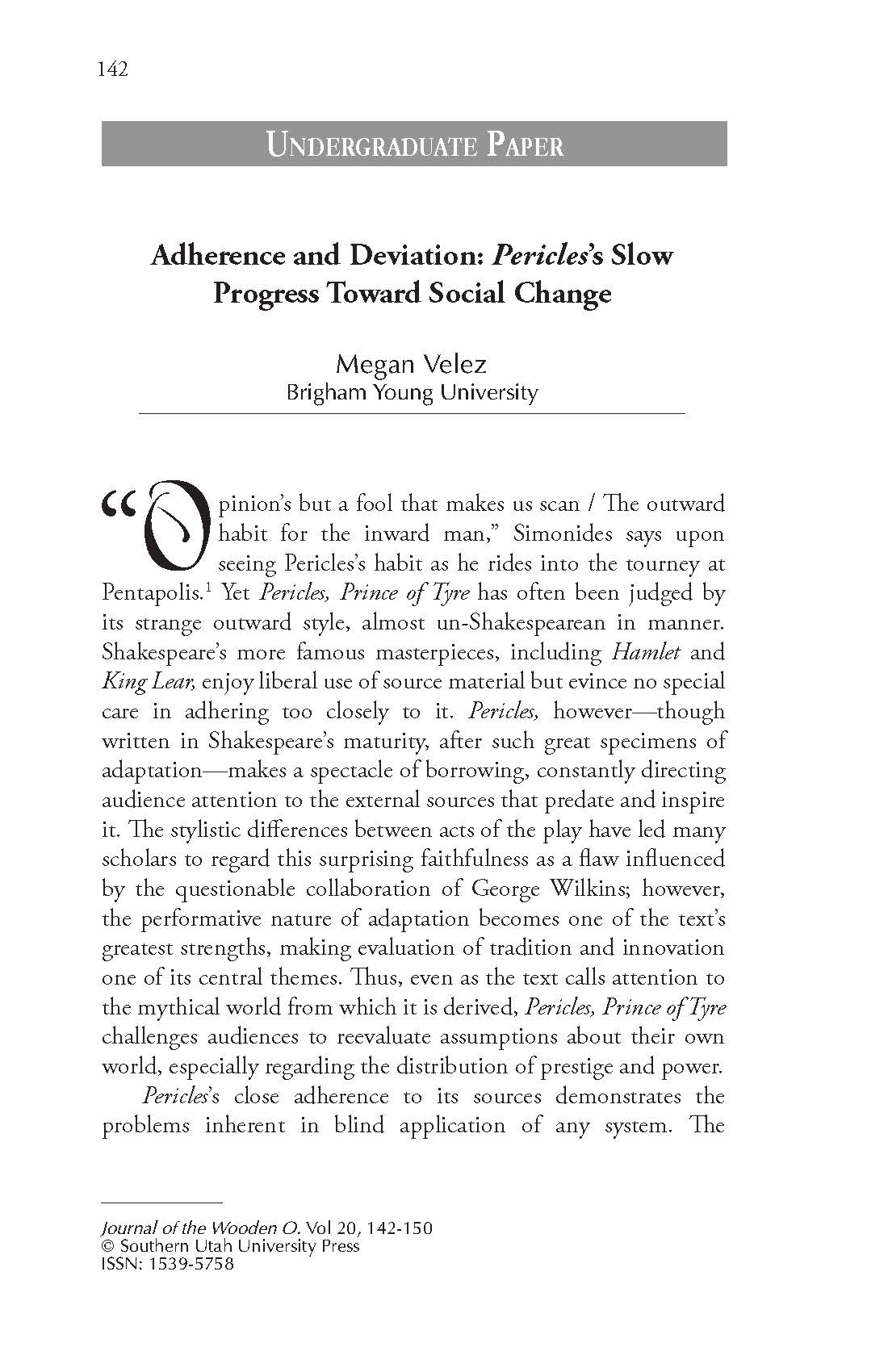Adherence and Deviation Pericles's Slow Progress Toward Social Change
Main Article Content
Abstract
“O pinion’s but a fool that makes us scan / The outward habit for the inward man,” Simonides says upon seeing Pericles’s habit as he rides into the tourney at Pentapolis.1 Yet Pericles, Prince of Tyre has often been judged by its strange outward style, almost un-Shakespearean in manner. Shakespeare’s more famous masterpieces, including Hamlet and King Lear, enjoy liberal use of source material but evince no special care in adhering too closely to it. Pericles, however—though written in Shakespeare’s maturity, after such great specimens of adaptation—makes a spectacle of borrowing, constantly directing audience attention to the external sources that predate and inspire it. The stylistic differences between acts of the play have led many scholars to regard this surprising faithfulness as a flaw influenced by the questionable collaboration of George Wilkins; however, the performative nature of adaptation becomes one of the text’s greatest strengths, making evaluation of tradition and innovation one of its central themes. Thus, even as the text calls attention to the mythical world from which it is derived, Pericles, Prince of Tyre challenges audiences to reevaluate assumptions about their own world, especially regarding the distribution of prestige and power.
